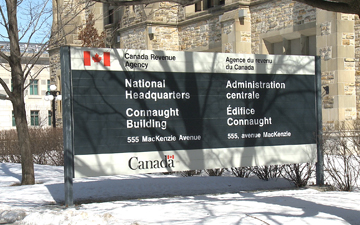Tax disputes and tax filing and payment relief efforts in the age of COVID-19

Joseph A. Gill of McKercher LLP reviews changes to tax deadlines
 |
Joseph A. Gill is a partner with McKercher LLP in Saskatoon. |
SASKATOON – In the wake of COVID-19, many businesses are examining the status of ongoing tax dispute matters, such as audits, Notices of Objection filed with Canada Revenue Agency ("CRA"), and Notices of Appeal filed with the Tax Court of Canada ("TCC"). This blog post examines the impact COVID-19 has had on tax dispute resolution and provides a summary of key developments.
Canada Revenue Agency Audits
CRA will not initiate any new tax audits until approximately April 15, 2020 (see Government of Canada Backgrounder and this CRA webpage). Additionally, CRA will temporarily suspend ongoing audits for almost all businesses (except large corporations, being generally defined as corporations with more than $10,000,000 of taxable capital employed in Canada). CRA has noted it will, however, pursue audits where (i) the statute-barred date to reassess a tax return is approaching, or (ii) there are high-risk GST/HST refund claims. Businesses can also expect delays in communicating with CRA as most CRA offices are closed until April 5, 2020.
Canada Revenue Agency Collection and Enforcement Efforts
CRA will not engage in any enforcement action on new debts until further notice and will look at existing situations on a case-by-case basis. CRA mentions that they will examine flexible payment arrangements for taxpayers and wish to prevent financial hardship in the wake of COVID-19. Practically speaking, and based on our experience, enforcement and collections efforts will be suspended until CRA offices are re-opened. The information to date has not specified whether interest will keep accruing on outstanding tax debts, but this is expected to be the case.
Canada Revenue Agency Objections
Objections related to benefits and credits will continue to be processed, while all other objections will be held in abeyance. No collection actions will be taken by CRA with respect to these objections during this period of time. Taxpayers are well-advised, however, to continue to file Notices of Objections online with CRA (through their online services) for two principal reasons:
- Avoid Further Delays – Once objections resume, it is anticipated there will be an even greater backlog of objections to work through. In our experience prior to COVID-19, objections were taking up to 12 months for a CRA agent to be assigned to them; this is only anticipated to increase once service resumes.
- Preserve Right to Object – Our Canadian tax legislation provides that Notices of Objection must be filed with CRA within 90 days of receiving a Notice of Assessment, Reassessment, or Confirmation (as the case may be). There is purview for seeking an extension from CRA of up to 1 year after receipt of any such Notice (the approval rate of these requests is quite high). However, taxpayers should note that these timelines continue to run despite COVID-19. Consequently, Notices of Objection should be filed to preserve the right to object.
Notices of Appeal to Tax Court
The TCC is closed until May 1, 2020 (see this Practice Direction). For matters before the TCC, all relevant timelines will be extended out for the time period from March 16, 2020, to May 1, 2020 (i.e., parties before the TCC will have additional time for matters such as filing of documents, examinations for discovery, etc.). For new matters brought to the TCC, in the same vein as Notices of Objection (discussed above), taxpayers are well-advised to continue to file Notices of Appeal to the TCC (this can be done online). The same rationales as to avoiding delays and preserving rights equally apply to matters before the TCC. In the case of the TCC, its' hearing schedule was already full for 2020 and the first few months of 2021. Consequently, it is expected there will be notable delays in the hearing of TCC appeals once they resume.
Extended Tax Filing Deadlines and Deferral of Tax Payable
While not strictly a matter related to dispute resolution, the Government of Canada previously announced the following changes to tax filing and tax payment obligations:
- Individual (other than Trust) Income Tax Returns – This has been deferred until June 1, 2020.
- Corporate Income Tax Returns and Partnership Information Returns – No deferrals have yet been announced.
- Trust Income Tax Returns – For trusts with a tax year-ended December 31, 2019, their tax filing date has been deferred to May 1, 2020.
- Charity Returns – For registered charities with a Registered Charity Information Return due between March 18, 2020, and December 31, 2020, the return filing due date is deferred to December 31, 2020.
- Individual and Corporate Deferral of Income Tax – Individuals and corporations will be able to defer any income tax amounts owing from March 18, 2020, to August 31, 2020. This applies to tax balances due as well as tax instalments. Further, individuals and corporations which choose to defer income tax will not be subject to interest or penalties on the amounts deferred during this time period.
Other Tax Relief and Changes
Given the fluid situation with COVID-19 and the high likelihood of additional changes in favour of Canadians, taxpayers are well-advised to keep an eye on the CRA COVID-19 website as well as the Tax Court of Canada website. We also note that various groups are advocating for additional changes to tax rules and legislation to provide more relief for taxpayers (see here for proposals made by the Chartered Professional Accountants of Canada).
Joseph A. Gill is a partner with McKercher LLP in Saskatoon.








(0) Comments